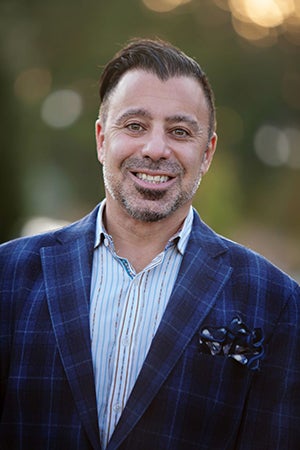
Within the first year of Boise State’s Value-Based Healthcare Certificate program, program director Jenni Gudapati received excellent news – the program received a Workforce Development Training Fund Industry Sector Grant from the Idaho Workforce Development Council to fund scholarships. Not only is this good news for the program, it is great news for eligible hospitals, health clinics, providers, public health entities, district health agencies, skilled nursing facilities and home health providers in rural Idaho.
Value-based healthcare is a delivery model where providers, including hospitals, clinics and physicians, receive payments based on patient health outcomes and the cost of care. Currently, most Americans receive fee-for-service care, which rewards providers delivering a large volume of services, rather than rewarding the quality of those services, to patients. Value-based payment agreements reward providers for helping patients to receive appropriate health screenings, benefits from preventative healthcare, improved health, reduced effects and incidences of chronic diseases, and live, overall, healthier lives. The goal: patients receive cost-effective care that is designed to avoid unnecessary services, duplicative testing or more expensive care than is medically necessary.
While the entire country is adopting value-based payment models, each state is implementing legislature, policies and processes on its own. Unfortunately, Idaho lags behind the nation in adopting value-based payment models; Idaho has a 29 percent rate for value-based payments while the national rate for value-based payments is 50 percent. It remains much more challenging for rural providers, hospitals and clinics to implement value-based payment models and 35 of Idaho’s 44 counties are rural.
Rural providers and healthcare facilities often face challenges in managing population health over large, sparsely populated geographical areas; experience burdens of satisfying performance measurement and reporting requirements; and lack data systems that can exchange and make use of information with other data systems in a secure and efficient manner. The Workforce Development Grant will help alleviate one common challenge – financial investment in education and professional development of employees who will be responsible for implementing the changes from the current fee-for-service model to value-based healthcare. Setting rural Idaho providers and healthcare institutions up for value-based healthcare success means they can better serve and care for rural Idahoans.
Grant scholarships are awarded to rural healthcare provider organizations/individuals to complete Boise State’s Value-Based Healthcare Certificate program. The program educates students about the adapting methodology and regulatory environments in healthcare. Throughout the program’s 17 week course, students learn about topics such as value-based care ideology; regulatory changes and legislation shifts; alternative delivery models, such as telehealth; and new nationwide benchmarks and care standards. Getting value-based healthcare education to rural Idaho providers is important to Boise State University and the College of Health Sciences. The Idaho Workforce Development funds are matched by the university to fully fund each scholarship.

This past spring, Steve LaForte, director of strategic operations and general counsel for Cascadia Healthcare, participated in the first cohort of the certificate program with several colleagues from Cascadia’s executive team. Cascadia is the largest post-acute care provider in Idaho, providing continued care after emergency room or urgent care visits or after surgery.
The Cascadia team completed the Value-Based Healthcare program in August 2020 and LaForte feels that the program was well worth it: “It has absolutely prepared us to engage change in a more meaningful way. The State of Idaho Medicaid Division of Health and Welfare is working on an overhaul of the reimbursement system for skilled nursing in Idaho, and in my role with Cascadia as well as my role as chair of the Legislative Committee of the Idaho Healthcare Association, I am on the working group to achieve that overhaul. The knowledge of value-based healthcare that I gained in the program is instrumental to the voice I provide there. Going beyond that, Cascadia is committed to initiatives to broaden its telehealth care delivery and to create an institutional special needs plan [to provide long term care to Medicare Advantage patients in a healthcare institution for 90 or more days]. With both of these projects, the Boise State program has strengthened my grasp of the issues and challenges, and how we best adapt to create meaningful change in these areas.”
The popularity of the certificate has increased with each cohort. The January 2021 cohort is currently full, including 30 scholarships, and there is a waitlist for the Fall 2021 cohort, which will start in August. “The need and willingness of Idaho rural organizations has been exciting to see and clearly displayed in meeting capacity by the third offering of this certificate program,” said Gudapati.
“This program is a game changer for anyone in healthcare who wants to adapt to the coming changes in delivery and reimbursement, but also get out ahead of it,” adds LaForte. “Jenni Gudapati and Thom Walsh [faculty for the certificate program] are gurus in this area and have incomparable visions relative to creating a new systems of care delivery, value, outcomes and reimbursement that will be a part of shaping the inevitable change that occurs in those areas in now and in the next decades.”
Learn more about the Value-Based Healthcare program. Contact Gudapati, jennigudapati@boisestate.edu, for scholarship application information.